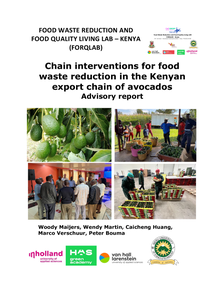This paper quantifies output from 11 annual conferences held by the European Federation of Food Science and Technology (EFFoST) in the period 2010–2020 on a range of themes in food science/technology, innovation, sustainability, valorisation, food safety, food and health, food properties, consumer aspects and related areas. Summaries of the 11 conferences have been published in a series of 11 reports published in Trends in Food Science and Technology. Collated outputs from the 11 conferences were 283 plenary/keynote lectures, 982 theme lectures, 3196 posters and 4710 attendees. This represents a very large dissemination effort by any standard and augers well for the status of food science and technology in Europe and also more globally. Special sessions are a feature of recent EFFoST conferences, consisting of discussion platforms/forums with chairpersons and ‘hot topics’ for debate. Two examples are (i) the OLEUM project which aims to better guarantee olive oil quality and authenticity, and (ii) the valorisation of side streams. Foremost among special sessions are those for young scientists. The Young EFFoST Day provides opportunity for young food professionals to expand their competencies and networking in food science. It is a day for young scientists managed by young scientists. Networking between conference attendees at posters sessions, coffee and lunch breaks is a key part of each conference, which facilitates information exchange and the framing of new collaborative projects.
DOCUMENT
With contributions from over 30 international legal scholars, this topical Research Handbook on International Food Law provides a reflective and crucial examination of the rules, power dynamics, legal doctrines, societal norms, and frameworks that govern the modern global food system. The Research Handbook analyses the interlinkages between producers and consumers of food, as well as the environmental effects of the global food network and the repercussions on human health. Chapters explore the development of food law and governance strategies, the regulation of novel foods, including insects, and the application of technology and science in food production, such as genetically engineered food. The insightful contributions examine the legal challenges facing the global food system and suggest practical recommendations for future research and reform. Providing a comprehensive and interdisciplinary perspective on the complex legal landscape of food production and consumption, this Research Handbook will be essential reading for students and scholars of food law, consumer law, public international law, and regulation and governance, as well as food system advocates, international lawyers, and policymakers.
LINK
This publication follows and analysis the proces in the region Westerkwartier in the Netherlands in their effort to built a whole new regionale food chain. In this report there is a remarkeble role for the knowledge instutions on vocational and applied level.
DOCUMENT

Moral food lab: Transforming the food system with crowd-sourced ethics
LINK
Jaarboek van de afstudeerders van HAS hogeschool, opleiding Food design 2016 met hun concepten ingedeeld in schakels van de keten: - In het deel Agri & Ingredients zijn ingrediënten en agrarische producten zoals groenten, peulvruchten als startpunt genomen van innovatie. - In het deel Factory treft u technologische innovaties en ontwikkelingen gericht op product, proces en kwaliteitsborging. - In het deel Channel kunt u innovaties in het marktkanaal, zoals blurring, omnichannel en online fooddiensten verwachten. - In het hoofdstuk Consumer zijn concepten te vinden die gericht zijn op specifieke doelgroepen, zoals ouderen, mensen met anosmie en stoeremannen.
DOCUMENT

This booklet presents the practice briefs (popular papers) of master and bachelor theses and business assignments of students at three Dutch Universities of Applied Sciences: Van Hall Larenstein (VHL), InHolland and HAS Green Academy, and Meru University of Science and Technology in Kenya. All theses and business assignments were commissioned through the researchproject entitled “Food Waste Reduction and Food Quality Living Lab (FORQLAB)” in Kenya.
DOCUMENT

This study theorizes on the sociomateriality of food in authority-building processes of partial organizations by exploring alternative food networks (AFNs). Through the construction of arenas for food provisioning, AFNs represent grassroots collectives that deliberately differentiate their practices from mainstream forms of food provisioning. Based on a sequential mixed-methods analysis of 24 AFNs, where an inductive chronological analysis is followed by a qualitative comparative analysis (QCA), we found that the entanglements between participants’ food provisioning practices and food itself shape how authority emerges in AFNs. Food generates biological, physiological and social struggles for AFN participants who, in turn, respond by embracing or avoiding them. As an outcome, most AFNs tend to bureaucratize over time according to four identified patterns while a few idiosyncratically build a more shared basis of authority. We conclude that the sociomateriality of food plays an important yet indirect role in understanding why and how food provisioning arenas re-organize and forge their forms of authority over time. Pascucci, S., Dentoni, D., Clements, J., Poldner, K., & Gartner, W. B. (2021). Forging Forms of Authority through the Sociomateriality of Food in Partial Organizations. Organization Studies, 42(2), 301-326. https://doi.org/10.1177/0170840620980232
DOCUMENT

Purpose: Food waste occurs in every stage of the supply chain, but the value-added lost to waste is the highest when consumers waste food. The purpose of this paper is to understand the food waste behaviour of consumers to support policies for minimising food waste. Design/methodology/approach: Using the theory of planned behaviour (TPB) as a theoretical lens, the authors design a questionnaire that incorporates contextual factors to explain food waste behaviour. The authors test two models: base (four constructs of TPB) and extended (four constructs of TPB plus six contextual factors). The authors build partial least squares structural equation models to test the hypotheses. Findings: The data confirm significant relationships between food waste and contextual factors such as motives, financial attitudes, planning routines, food surplus, social relationships and Ramadan. Research limitations/implications: The data comes from an agriculturally resource-constrained country: Qatar. Practical implications: Food waste originating from various causes means more food should flow through the supply chains to reach consumers’ homes. Contextual factors identified in this work increase the explanatory power of the base model by 75 per cent. Social implications: Changing eating habits during certain periods of the year and food surplus have a strong impact on food waste behaviour. Originality/value: A country is considered to be food secure if it can provide its citizens with stable access to sufficient, safe and nutritious food. The findings and conclusions inform and impact upon the development of food waste and food security policies.
MULTIFILE
Publicatie bij de rede van Feike Ruurd van der Leij, uitgesproken bij de aanvaarding van de functie van lector Health & Food aan Hogeschool Inholland in Amsterdam op 11 oktober 2021
MULTIFILE

This publication the avocado advisory report which is based on popular papers (practice briefs) of master and bachelor theses and business assignments of students at three Dutch Universities of Applied Sciences: Van Hall Larenstein (VHL), InHolland and HAS Green Academy, and Meru University of Science and Technology in Kenya. All 23 theses and business assignments were commissioned through the research project entitled “Food Waste Reduction and Food Quality LivingLab (FORQLAB)” in Kenya.
DOCUMENT
